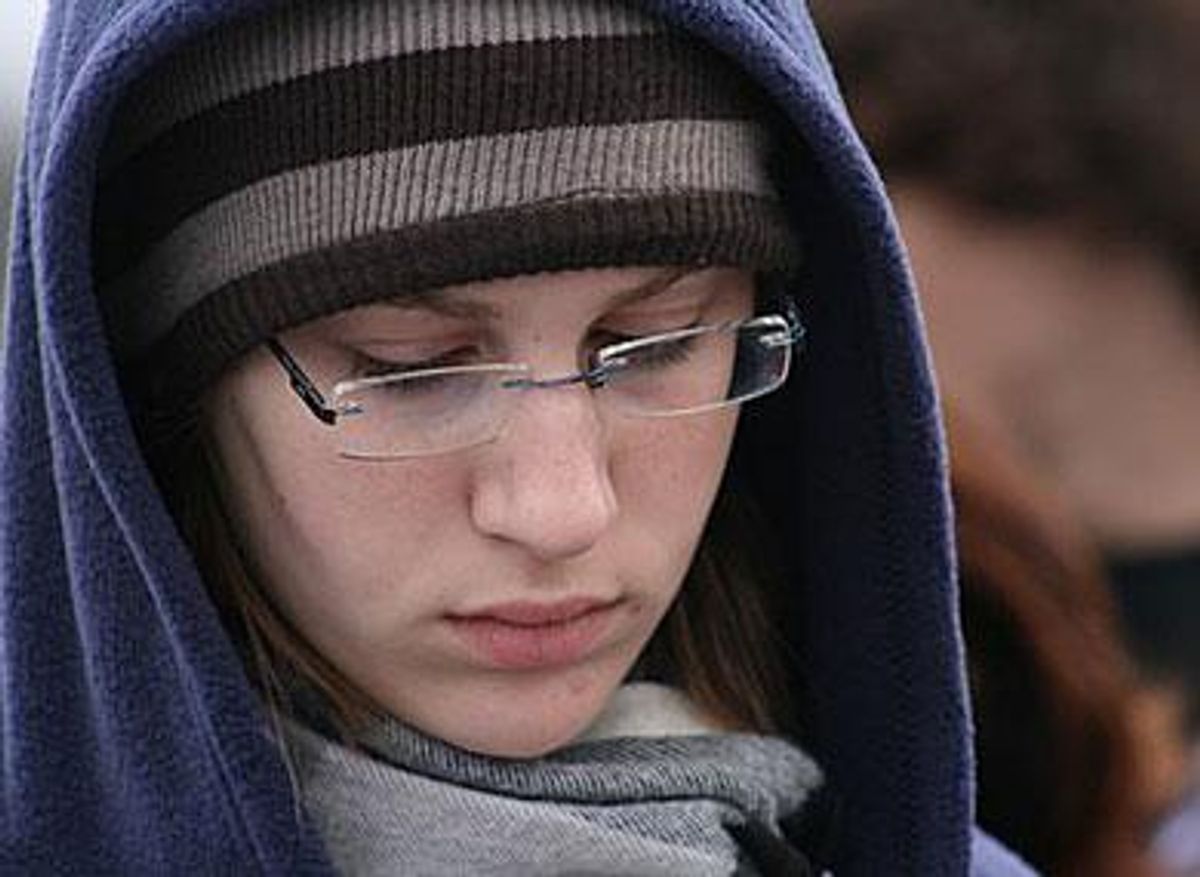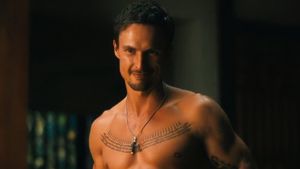For Alona Livneh, Saturday nights at Bar Noar had become something of a routine. The 18-year-old would spend Saturday nights at the basement apartment that doubled as a gay youth center to meet other gay friends, talk over loud music, and drink soda around the billiard table. The three rooms that make up Bar Noar operate as one the few places where gay teenagers can congregate in Tel Aviv. Saturday night provided a repetition so comforting to Livneh that the first five pops splitting the warm evening air didn't even register.
The night of August 1, Livneh was sitting outside the center, barely 10 minutes into a game of chess, when a masked man dressed all in black walked into the basement and sprayed the kids aged 14-21 years old with an M16 rifle. Livneh was startled -- she thought children were throwing snaps on the pavement nearby. Inside, the man blocked the only exit as he continued to shoot at those who were hiding under the tables. The victims were too shocked to scream, and the stereo's rhythmic thudding continued.
Suddenly, gunpowder rose into the air and the room erupted with shrieking as the shooter escaped. Livneh's cousin burst from the exit and told everyone to run. She remembers first thinking that the building was about to explode from a gas leak, but after seeing no smoke and overhearing her cousin's emergency 1-0-0 call, she tensed.
"There was a shooting at the corner of Nahmani and Ahad Ha'Am," he said.
Upon arriving on the scene, police ordered that all gay bars and clubs throughout the city be closed. Because the city's gay population is spread evenly across Tel Aviv, scores of police were called in for a citywide clampdown.
Shai Doisth, head of the Gay Tourism Project and a national board member of the Israeli LGBT association Aguda, says the city has long been a beacon for freedom in Israel where gays could safely be out and proud. Sixth months earlier, the city declared that attracting more gay-specific tourism to its Mediterranean shores was its major goal of the year.
"The gay community in Tel Aviv and all over Israel was shocked when we understood what happened," he said. "We didn't expect it to happen in our city."
Back at the center, Livneh was similarly shocked. Around her, teenagers escaped with wounds on their legs, bleeding, but the more seriously wounded were still inside waiting for paramedics to arrive.
"I spent the whole time with a friend who was lying on his side in fetal position right by the exit of the yard," she says. "He was so close to escaping when he was shot. He had a bullet wound in his shoulder and one in his knee. I just spent the whole night with him, keeping him awake and telling him everything was going to be all right," she said. "I didn't go back into the apartment; my cousin told me there was a lot of blood and people in critical condition. I knew I couldn't see it. Only later that night did I learn that two were instantly killed."
Liz Troubishi, 17, and 26-year-old counselor Nir Katz were immediately pronounced dead, while 15 others survived with injuries ranging from minor to near-critical.
The aftermath brought rallies, international media attention, and vigils around the world. Livneh spent these next days visiting friends at the hospital. Some victims, who were in the closet before the shooting, maneuvered an uncomfortable outing. Police, searching for motive and uncomfortable with escalating tension between the liberal population and a growing ultra-Orthodox community from Jerusalem, implemented a gag order that tightly controlled the manhunt's details. Police offered that the shooter could have been either an ultra-Orthodox radical or an LGBT person motivated by scorn and self-hatred.
All homophobic activity was closely monitored by police and media. On the Thursday before a major Jerusalem vigil, people placing promotion posters in a Haredi (the most conservative form of Judaism) neighborhood were chased from it by local Haredim.
As the investigation picked up, police arrested Shmuel Preimark, a soldier in an ultra-Orthodox unit of the Israeli army. Preimark had written online messages saying LGBT people and their supporters should expect more victims in the future.
Police confiscated his two computers and a personal weapon with ammunition. According to national media, he is cooperating with police and was not charged with making explicit murder threats or with carrying out the violence itself.
On the shooting's one-week anniversary, Israeli president Shimon Peres addressed an evening rally in Tel Aviv's packed Rabin Square. Peres told the crowd he had come to share their tears over the loss of Troubishi and Katz and set a tone that would continue throughout the night.
"The shots which struck this proud community affected us all as human beings, as Jews and as Israelis. The man who targeted the two victims targeted all of us," Peres said, according to national newspaper Haaretz. He added, "Everyone has the right to be different and proud."
Chen Langer, a victim of the shooting, wheeled her way across the stage.
"This is the day in which we cease to be silent, to hide, and to alter the appearance of reality," she said, noting that "the home that was a place of security for youths became a slaughterhouse of youths."
Meanwhile, those lying in the hospital were angry and scared but, according to Livneh, had perhaps a more positive attitude than those who were unscathed.
"I think we didn't realize how close our brush with death was, we being the unwounded people," she says. "They realized it because they were wounded, some of them were in serious condition, and they're just happy to be alive. We're not aware of how lucky we are to be alive."
Though the shooter is still at large, Tel Aviv's gay community, perhaps surprisingly still feels safe.
"There is no place that's 100% safe, but I never for one moment felt scared in Tel Aviv to be who I am," Livneh says. "I still feel that way now. The shooter was a human being, and he could have existed in any other city, on any other continent. Because of one horrible night I am not going to feel threatened in my own city, and I will not be afraid to be who I am, just as if this were to happen in any other city."
When she runs over the night in her mind, Livneh says she cannot envision a face behind the shooter's mask.
"I can't imagine that a person would want to do this," she says. "Seeing his face would be hard for me, because keeping the intellectual and the emotional aspects of this apart is helping me cope."
The intellectual component is what the shooting may represent. On one side, the community could capitalize on the shooting and use it to promote tolerance as it did following stabbings in a 2005 Pride parade in Jerusalem. She does not believe the shooter could be gay, saying that shooting a small group of teenagers makes no sense.
Says Livneh: "It's the part about not understanding that drives you nuts, not having an answer to all these questions ... I've barely cried since the incident. Two days ago I spoke with a good friend who was there during the incident. I asked her, 'What happened to us? What did we go through?' and that was when I had tears in my eyes."

















































































